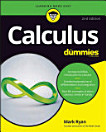Analysis
જાન્યુ 2001 · Crm Proceedings & Lecture Notes પુસ્તક 14 · American Mathematical Soc.
ઇ-પુસ્તક
346
પેજ
reportરેટિંગ અને રિવ્યૂ ચકાસેલા નથી વધુ જાણો
આ ઇ-પુસ્તક વિશે
Significantly revised and expanded, this new Second Edition provides readers at all levels - from beginning students to practicing analysts - with the basic concepts and standard tools necessary to solve problems of analysis, and how to apply these concepts to research in a variety of areas. Authors Elliott Lieb and Michael Loss take you quickly from basic topics to methods that work successfully in mathematics and its applications. While omitting many usual typical textbook topics, ""Analysis"" includes all necessary definitions, proofs, explanations, examples, and exercises to bring the reader to an advanced level of understanding with a minimum of fuss, and, at the same time, doing so in a rigorous and pedagogical way. Many topics that are useful and important, but usually left to advanced monographs, are presented in ""Analysis"", and these give the beginner a sense that the subject is alive and growing.This new Second Edition incorporates numerous changes since the publication of the original 1997 edition and includes: a new chapter on eigenvalues that covers the min-max principle, semi-classical approximation, coherent states, Lieb-Thirring inequalities, and more; extensive additions to chapters covering Sobolev Inequalities, including the Nash and Log Sobolev inequalities; new material on Measure and Integration; many new exercises; and, much more. ..The Second Edition continues its no-nonsense approach to the topic that has made it one of the best selling books on the subject. It is an authoritative, straight-forward volume that readers - from the graduate student, to the professional mathematician, to the physicist or engineer using analytical methods - will find useful both as a reference and as a guide to real problem solving.About the authors: Elliott Lieb is Professor of Mathematics and Physics at Princeton University and is a member of the US, Austrian, and Danish Academies of Science. He is also the recipient of several prizes including the 1988 AMS/SIAM Birkhoff Prize. Michael Loss is Professor of Mathematics at the Georgia Institute of Technology.
આ ઇ-પુસ્તકને રેટિંગ આપો
તમે શું વિચારો છો અમને જણાવો.
માહિતી વાંચવી
સ્માર્ટફોન અને ટૅબ્લેટ
Android અને iPad/iPhone માટે Google Play Books ઍપ ઇન્સ્ટૉલ કરો. તે તમારા એકાઉન્ટ સાથે ઑટોમૅટિક રીતે સિંક થાય છે અને તમને જ્યાં પણ હો ત્યાં તમને ઑનલાઇન અથવા ઑફલાઇન વાંચવાની મંજૂરી આપે છે.
લૅપટૉપ અને કમ્પ્યુટર
Google Play પર ખરીદેલ ઑડિઓબુકને તમે તમારા કમ્પ્યુટરના વેબ બ્રાઉઝરનો ઉપયોગ કરીને સાંભળી શકો છો.
eReaders અને અન્ય ડિવાઇસ
Kobo ઇ-રીડર જેવા ઇ-ઇંક ડિવાઇસ પર વાંચવા માટે, તમારે ફાઇલને ડાઉનલોડ કરીને તમારા ડિવાઇસ પર ટ્રાન્સફર કરવાની જરૂર પડશે. સપોર્ટેડ ઇ-રીડર પર ફાઇલો ટ્રાન્સ્ફર કરવા માટે સહાયતા કેન્દ્રની વિગતવાર સૂચનાઓ અનુસરો.










